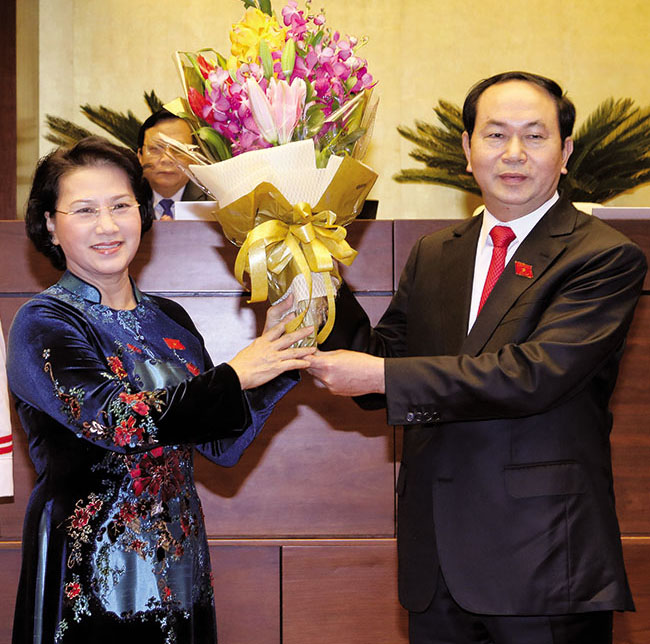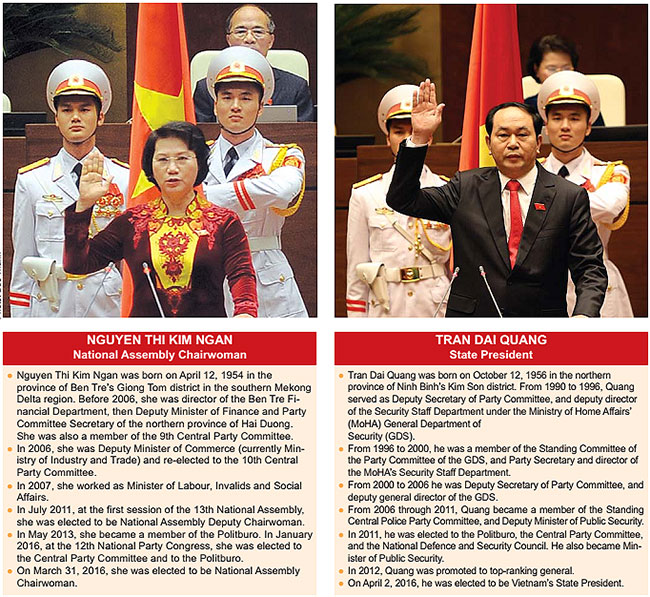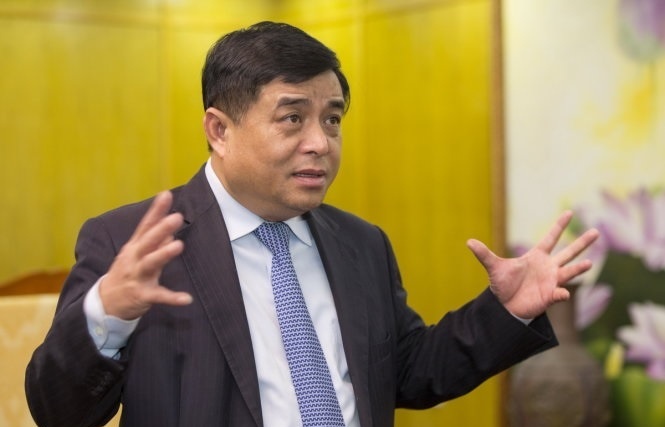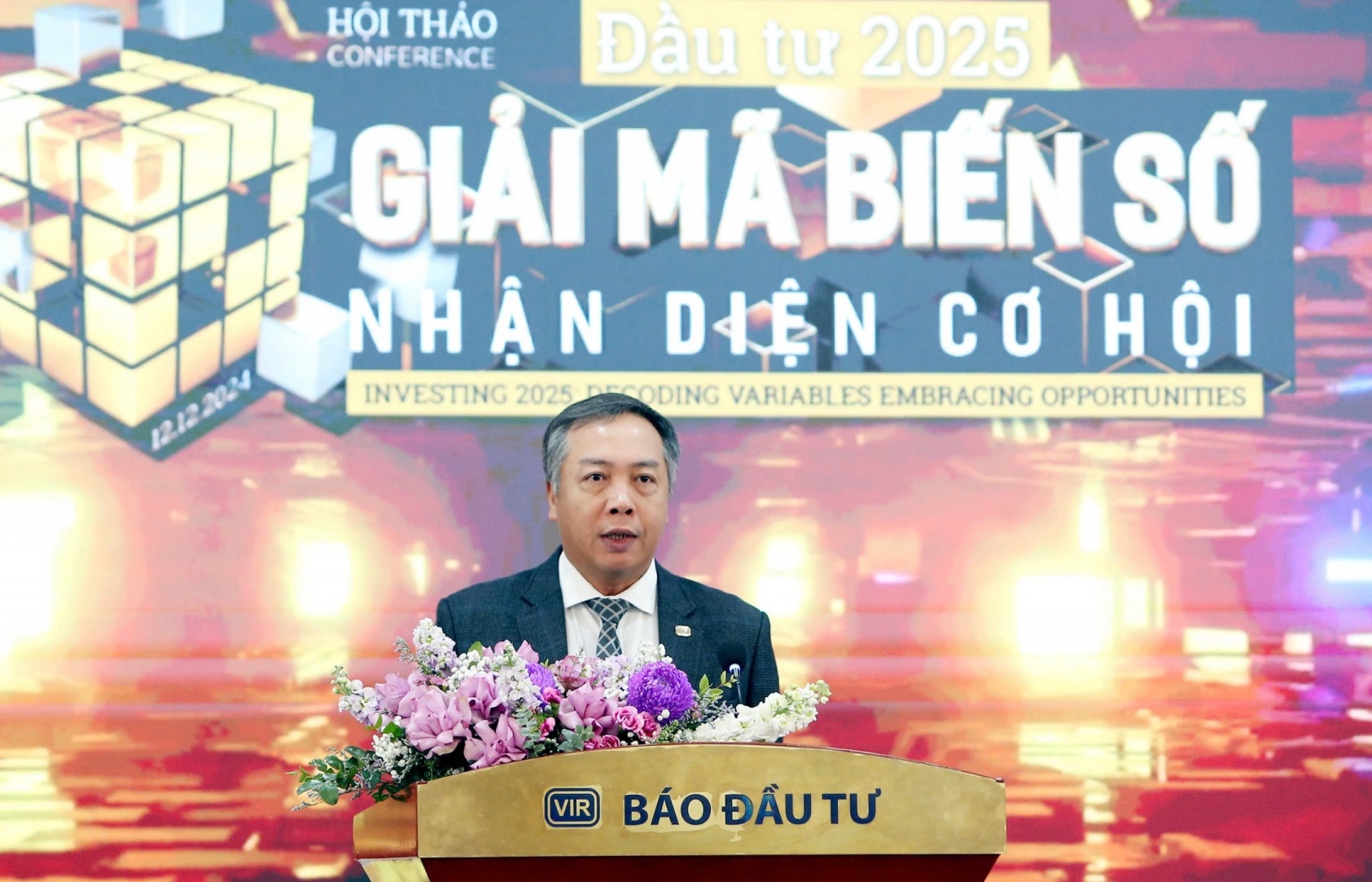New state leaders take up reins to steer nation
 |
| For the first time in its history, Vietnam’s National Assembly will be chaired by a woman, Nguyen Thi Kim Ngan. The election of Tran Dai Quang also marks the first time a Minister of Public Security has become State President |
After Nguyen Phu Trong was re-elected to be General Secretary of Vietnam’s Communist Party for a second term during the 12th Party National Congress in late January, the National Assembly last week elected Nguyen Thi Kim Ngan as its new Chairwoman on Thursday and Tran Dai Quang as the new State President on Saturday. The two new leaders will remain in office until 2020.

Ngan, 62, has become the first Vietnamese woman to lead the country’s legislative body. With 472 (95.5 per cent) out of 484 deputies voting in her favour, Ngan has replaced Nguyen Sinh Hung, who was the legislative body’s Chairman during the 2011-2016 tenure.
After the ballot, Ngan took the oath of office, vowing to “be completely faithful to the country, people and the Constitution of the Socialist Republic of Vietnam.”
She told the media that “this is the first time a National Assembly chairperson has made an oath at the National Assembly after the vote under the 2013 Constitution.”
“It has been quite a sacred moment and the elected person shoulders a great responsibility. I will keep my oath in my mind, in order to accomplish all tasks assigned by the Party, the State, and the people to the best of my ability,” she said.
Over the past few years, Ngan has drawn the attention of the National Assembly with big headlines in the mass media thanks to her many achievements. Specifically, at the National Assembly’s November 2014 confidence vote for officials with positions either elected or approved by the National Assembly, Ngan ranked first among 50 officials, with 390 votes in her favour, or 78.47 per cent of total National Assembly members. In June 2013, at a previous National Assembly confidence vote, Ngan also ranked first among 47 officials, with 372 votes in favour, or 74.7 per cent of National Assembly members.
Notably, in early March 2016, Forbes Magazine listed Ngan as the most influential woman in Vietnam.
Many National Assembly members, like Truong Trong Nghia from Ho Chi Minh City, also highly commended Ngan, saying that she had served in various positions and has valuable experience.
“I believe Ngan will be able to meet the country’s new development requirements. In the time to come, we expect that under Ngan’s leadership, the National Assembly will produce high-quality laws,” Nghia said.
The National Assembly last Saturday also elected top-ranking general Tran Dai Quang, 60, to be Vietnam’s new State President for the 2016-2020 term. Quang earned 452 (91.5 per cent) out of 483 votes in favour. For the first time in history, a Minister of Public Security has been elected state president. Quang, who is a professor and doctor in law, replaced Truong Tan Sang, who held the position since 2011.
In his oath made at the National Assembly, Quang stated that “I vow to be completely faithful to the country, people and the Constitution of the Socialist Republic of Vietnam.”
“I will make great efforts to dutifully accomplish all tasks that the Party, the State and people have assigned to me,” Quang stated. “With the great honour and responsibilities that come with the head of state position, and as Chairman of the Defence and Security Council commanding the people’s army forces, I pledge to do my utmost to serve the country and the people, while inheriting and promoting the glorious tradition of national construction and protection, and drawing upon the experience of the former state presidents.”
“In the national solidarity bloc, I will be determined and steadfast in maintaining and protecting national independence, national sovereignty, territorial integrity, and the national interests and security,” he said.
Deputy Vo Tuan Nhan from the south-central province of Quang Ngai said that Quang had a great wealth of experience. “I hope that as the country’s new state president he will successfully accomplish his tasks assigned by the Party, the state, and people.”
This Thursday, the National Assembly will also elect Vietnam’s new prime minister, who will replace Prime Minister Nguyen Tan Dung. Dung has led the charge on Vietnam’s economic reforms over the past 10 years. Deputy Prime Minister Nguyen Xuan Phuc is the sole candidate for the prime minister’s position. He was elected to the Politburo in January 2016.
What the stars mean:
★ Poor ★ ★ Promising ★★★ Good ★★★★ Very good ★★★★★ Exceptional
Latest News
More News
- VIR event to hear expert views on investing for 2025 (December 11, 2024 | 15:41)
- Google to make its debut in Vietnam (December 06, 2024 | 19:10)
- Nvidia to build two AI centres in Vietnam (December 06, 2024 | 15:27)
- Vietnam poised to lead Southeast Asia's e-commerce revolution (December 03, 2024 | 17:36)
- Economy on track to end year on upbeat note: UOB (December 03, 2024 | 08:46)
- Manufacturing sector remains in growth territory (December 02, 2024 | 16:21)
- More vigorous 2025 in sight for M&A deals (December 02, 2024 | 10:30)
- M&A market set to boom again in 2025 (November 28, 2024 | 10:40)
- Vietnam M&A Forum 2024 reveals new opportunities (November 27, 2024 | 15:42)
- Pathways for transitioning to EVs in Vietnam (November 26, 2024 | 13:54)

















 Mobile Version
Mobile Version